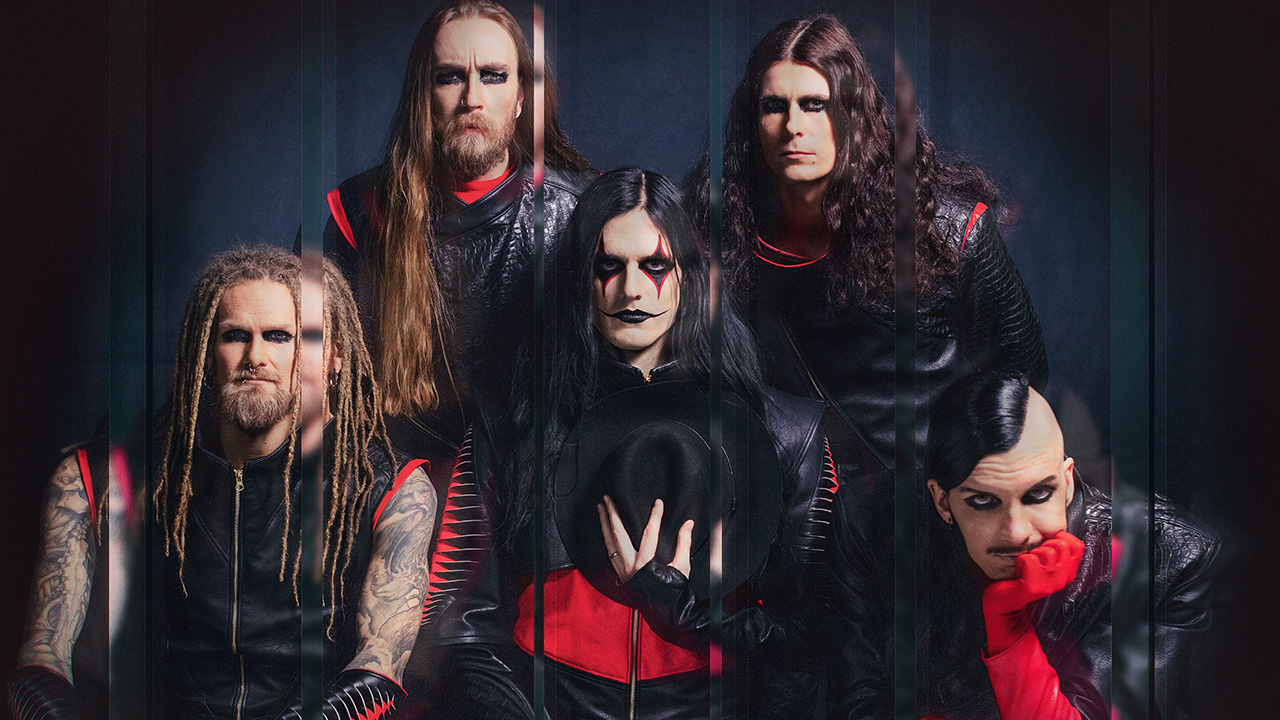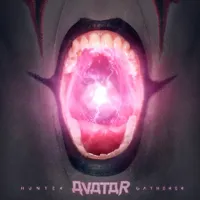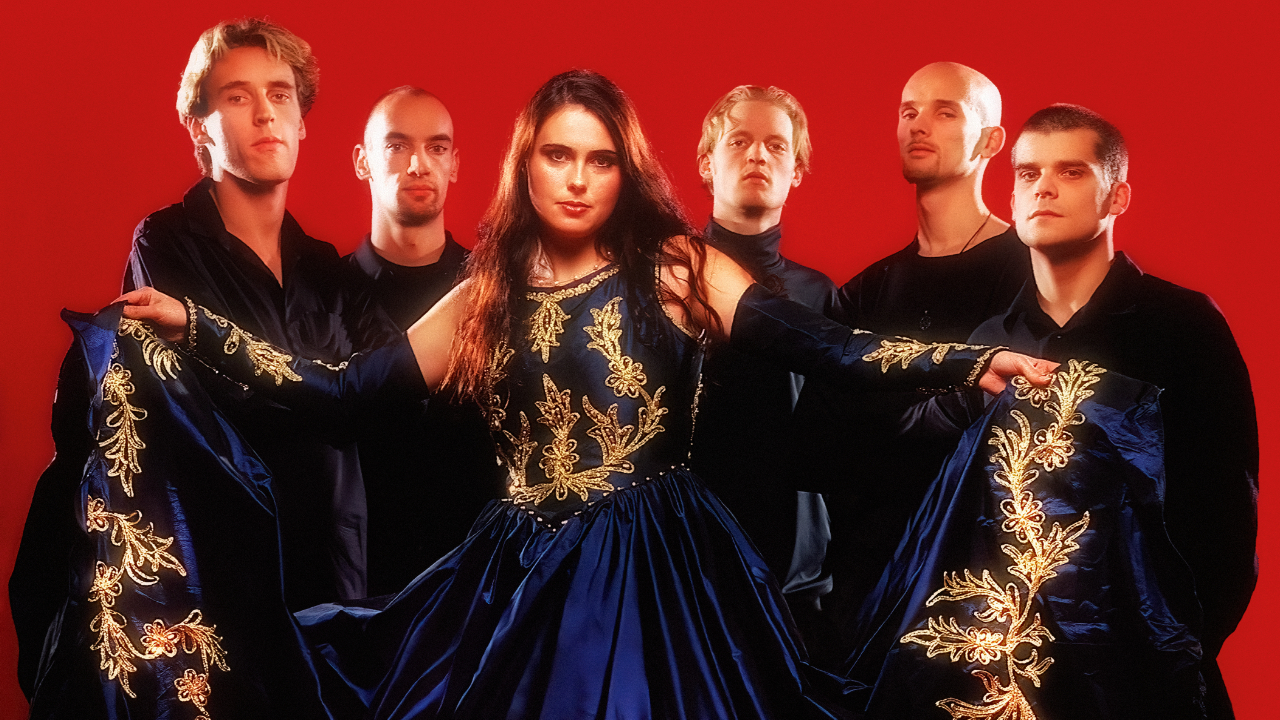Avatar’s track by track guide to new album Hunter Gatherer
How Swedish metal heroes Avatar made their darkest, angriest albums yet – and roped in Corey Taylor for the year’s most unlikely cameo

Avatar frontman Johannes Eckerström knew exactly what he wanted his band’s eighth album, Hunter Gatherer, to be from the start. “We got our Manowar album out of our system with Avatar Country,” he says of Hunter Gatherer’s 2017 OTT predecessor. “With this one, we wanted to make an aesthetic statement: something darker, something heavier, something more aggressive.”
It certainly lives up that billing, without losing any of the sonic adventurousness that defined Avatar Country and 2016’s conceptual fable Feathers & Flesh. Hunter Gatherer itself isn’t a concept album, but it does deal with a range of big topics, from mankind accelerating towards its own self-inflicted demise to the catastrophic disregard with which we treat the planet. More than any Avatar album before, Hunter Gatherer is angry.
“I’ve never wanted to point fingers, cos who am I to judge?” says Johannes. “I've always put that anger to one side. But I realised I had to address the bullshit in the world, and the bullshit within me too - not denying the role I play in everything.”
Johannes has agreed to talk us through Hunter Gatherer track by track, unpacking some of it's more complex ideas and explaining just how he roped Slipknot’s Corey Taylor into the year’s most unlikely cameo…

- The 50 best Metallica songs of all time
- We got Slipknot to put together the ultimate 25 track mixtape
- 10 obscure Swedish bands every metal fan needs to hear
- The 50 best death metal albums ever
Silence In The Age Of Apes
Musically, the main riff is really old. I came up with it for a band I was in during the early days of Avatar - it was barely even a band, we never rehearsed and just drank beer instead. I forgot about the riff, then last year I remembered it - sometimes you have to let things lie at the back of your brain before you know what to do with them.
Lyrically, it really summarises what the album is about. I was really influenced by the book Sapiens, by Yuval Noah Harari, which is where the title Hunter Gatherer came from. It’s about the development of our species, and who we spent 10,000 of years being hunter-gatherers before wheat and agriculture and our whole diet changed us really quickly, and not necessarily in a good way. Now we're these hunter-gatherer brains trapped in this technological world we’ve built for ourselves.
The song is based on the creation myth of Norse mythology, where Odin and his two brothers slayed this giant, and built the world out of his body. And in this case, the world is built out of cyborg entrails, and we're the gods who have built it. We're at this fork in the road where we're choosing which future we're heading towards: it could be this awesome Star Trek future, or it could be terrible like Terminator 2. And we're accelerating faster and faster towards it, and we can’t slow down. And that’s incredibly dangerous.
Sign up below to get the latest from Metal Hammer, plus exclusive special offers, direct to your inbox!
The title Silence In The Age Of Apes refers to the fact that we're making a lot of noise and yelling at each other and blowing things up. But if you look down from space, it's very quiet down here. It's all silent in the age of apes.
Colossus
I am huge fan of science and sciencey people doing sciencey stuff, and Colossus came from something I saw where somewhere they were working on recreating a fully functional human brain inside a computer. And once you have a digitally recreated brain, from the perspective of that brain, that must be human. That threw me into an existential crisis loop. It would be one of our greatest inventions, but it’s also scary and there are ethical dilemmas: what’s right, what’s wrong, what are we supposed to do? We’re these scientists-apes opening up so many potentially dark areas.
A Secret Door
Our producer, Jay Ruston, is friends with Corey Taylor, and Corey’s wife is a fan of Avatar. So they came by when we were working on the album, just as a casual thing. But we thought, ‘Hang on, he’s this icon of our generation, maybe we should ask him to do something…’
We didn’t want it to be duet. Instead, we thought about how, in the first season of South Park, they got George Clooney to be a dog and Jay Leno to be a cat. It was: ‘We've got this big star, let’s do something completely unexpected and not obvious.’ So we asked him to whistle on this song, and he was kind enough to be open to the idea. And even though it was a funny idea, he took it really seriously once he got in the sound booth. If we'd asked him to make fart noise, he would have made the best fart noises he could.
Lyrically, it's really personal. Ultimately, at the core of it is the idea of hope – not that there's always hope, but should at least believe there's hope, even if there is none. You have to have faith that you can jump off cliff and a door will open on the way down and save you. In a metaphorical sense anyway.
God Of Sick Dreams
I kept having these vivid apocalyptic dreams of the world ending in violent ways, and this was inspired by one of those. I’m in this apartment, I look out of the window and see a city outside. There’s a sense of dread then and explosion - kind of this lightning striking. Where it exploded the city would disappear, and you’d hear the screams and the air-raid alarms. And my niece is in this dream. I pick her up and run, and I’m running down the stairs in this apartment building trying to find a safe place, but there’s nowhere. Then I wake up with this dreadful sense of not knowing how to protect her.
But that was all created in here [taps his head]. This cruel demon creating these nightmares for me, it’s all me. I guess this song is a way to acknowledge and process that dark side.
Scream Until You Wake
It's another existential dread song. It’s about trying to find your place I'm not trying to wake you up, you have to wake yourself up before it’s too late - it’s a call to action to change the situation, but there’s a bit of paranoia in there too.
Child
I heard a kind of church organ quality in how the guitars were arranged, which inspired the story. It’s set in a place that looks kind of like early 20th century England - an era where a woman with some character would be deemed hysterical and might be treated with a lobotomy as a cure. And what if that person might have been a mother? So there's a story about an unseen child, and the cruel reality of that – of people denying what happened, or denying her her life, not fully seeing the child and whispering about it behind its back. The chorus is about playing a game where everything is OK - it’s a way for this unseen child to process the cruelty of the world.

Justice
It’s about anger and disappointment at trying to play the game the way you were told and it being shit: ‘I tried to play nice, I tried to be the thing I was supposed to be and it still backfired, so I’m gonna get a mullet and a denim jacket and raise my middle finger.’ That's kind of a simplified version, but that’s what it’s about. My mom said having long black hair was a phase, and of course it wasn’t. These things stand for something. You’re constantly evaluating what makes sense and what doesn’t make sense and what is valuable
Gun
That vocal took many takes to get right. There’s a lot of emotion in it. The song is about loss and vulnerability. You give a boy a gun, and there’s a danger and a sadness when it backfires.
Musically, it's one of the older things on the album. I actually came up with it when I was working as a substitute PE teacher. There was a piano there, and I would play the same jingle to make them clean up and sit down in a circle. It bothers me that I lost the first recording I had of it. It was on the phone I had at the time - very atmospheric, as it was a bit distorted and muffled, and you hear kids playing in the distant background. It was perfect.
When All But Force Has Failed
It starts with two lines: “Bird carcass with a belly full of plastic/One more year and I'll be a millionaire.” It summarises this bullshit. On one hand, who am I to judge? But still, plastic in the bellies of bird carcasses is is a symptom of many, many things being very, very wrong.
This is a really direct song, really straightforward and angry. I’m angry at it all: climate change and pollution and plastic islands in the sea. I’m calling out the world, but also my own participation in it. I need to set an example to myself of how I want things to be done.
Wormhole
If you’re facing the coldness of the universe and how time moves on mercilessly, there’s a fear of abandonment. You want something to hold onto. But the wormhole is closing – wherever we were, can’t return it. It’s going away. That’s what we're all facing.
The hope is in acknowledging all of these things. Articulating these things hopefully gives me the strength to process it, to move on and hopefully build something out of it. And beyond that, if nothing else this album is a fantastic piece of heavy metal. And that's important too.

The follow up to 2017’s Avatar Country, the Swedish band’s eighth album is the most direct and darkest in years. It features the singles The God Of Sick Dreams and Colossus, plus eight more killer tracks.
Dave Everley has been writing about and occasionally humming along to music since the early 90s. During that time, he has been Deputy Editor on Kerrang! and Classic Rock, Associate Editor on Q magazine and staff writer/tea boy on Raw, not necessarily in that order. He has written for Metal Hammer, Louder, Prog, the Observer, Select, Mojo, the Evening Standard and the totally legendary Ultrakill. He is still waiting for Billy Gibbons to send him a bottle of hot sauce he was promised several years ago.


